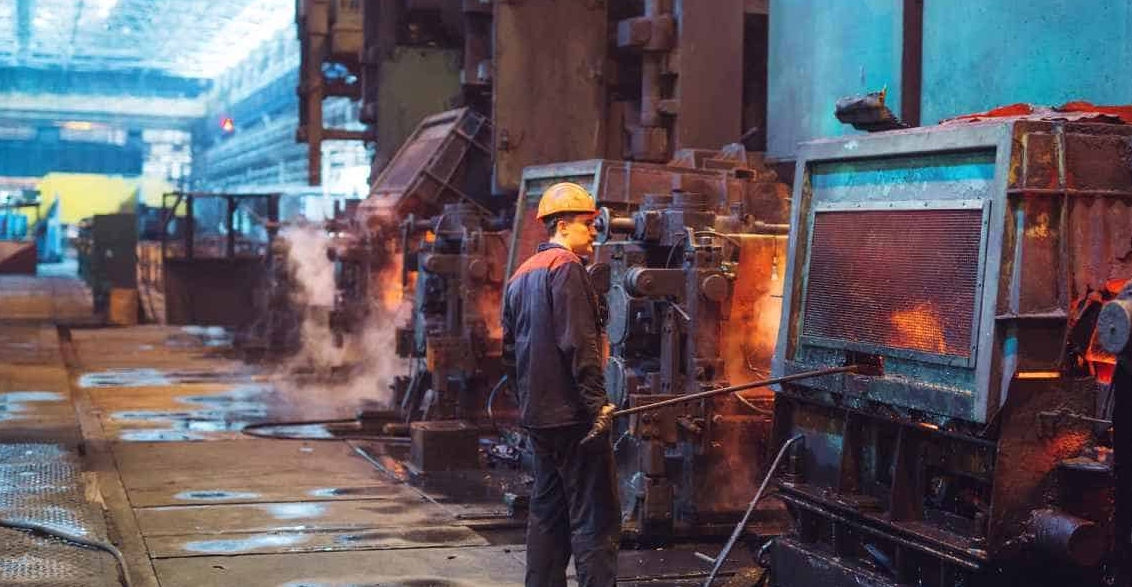Are you curious about the thriving world of steel and ore? I wonder how many job opportunities are expected to be exploited in this booming industry. In this article, we will see the major career options available in the field of steel and sees. From engineers creating monumental structures to miners extracting precious resources, there’s a job for every passion and skill.
Benefits of Working in Steel Industries
- Job satisfaction
Many workers in the steel industry report high levels of job satisfaction. This is likely due to the sense of pride that comes with working in such a critical sector of the economy, as well as the friendship among workers.
- Good pay:
Although there are some low-paid jobs in the steel industry, overall pay is relatively good compared to other sectors. This is especially true for skilled workers such as welders and engineers.
- Opportunities for advancement:
There are many opportunities for progress in the steel industry, especially for those willing to make the extra effort. With hard work, it is possible to move up from beginner-level positions to managerial roles.
- Interesting career:
Working in the steel industry can be fascinating and challenging, thanks to the technology and processes constantly involved in development. There’s always something new to learn that helps keep things interesting.
Acceptable requirements for jobs available in steel/hour
- A high school diploma or equivalent to it
- At least 18 years old
- Ability to lift at least 50 kilograms
- Skip a physical and drug screen before employment
- Have a clean criminal background check
- Strong communication and interhuman skills
- Ability to work well under pressure and meet deadlines
- Knowledge of security procedures
Places to find work in Steel/Ore
- Online Labor Board
Online job boards are a great place to start your search for a job in this industry. Sites like Indeed, Monster, and CareerBuilder have many listings for steel and ore works. You can use the keyword search function on these sites to find jobs that match your skills and interests.
- Company Websites
Companies’ websites are another excellent source for finding jobs in steel and ore. Many companies have careers pages on their website that list current openings. You can also use LinkedIn to research companies in the industry and see if any of your connections work there.
- Job Fairs
Job fairs are also a great way to meet employers in the industry and learn about the positions available. Check with your local chamber of commerce or workforce development center to see if there are any future job fairs in your area.
The best companies hiring for steel/or work
- ArcelorMittal:
This multinational steel company is headquartered in Luxembourg and is the world’s largest steel producer, with operations in more than 60 countries.
- Nucor Corporation:
Nucor is the largest steel producer in the United States and is also one of the most efficient. They are always looking for talented individuals to help them continue to be the best in the business.
- Steel Dynamics, Inc.:
Steel Dynamics is one of the largest steel producers in America and operates throughout the country. They offer a range of positions in their company and are always looking for talented people to fill them.
Various jobs available in steel/clock
- Mining Engineer:
Mining engineers are required to extract minerals and metals from the ground. They usually work in mining operations or mineral and metal processing plants. Mining engineers often specialize in a particular mineral or metal, such as coal, iron ore, copper, or gold. Most mining engineering programs are quadrennial programs that include classroom work and fieldwork. Classroom work usually includes courses in math and science, as well as engineering subjects.
- Geologist:
The geologist is one of the few jobs in the steel and ore industry. A geologist studies the composition, structure, and history of rock formations to find minerals, metals, and other natural resources of economic value. They also search for new deposits of these materials and map their location. Most geologists work for mining companies, oil and gas companies, or engineering firms. They usually spend most of their time outside, working in places where mineral specimens are found.
- Metallurgy:
Metallurgists usually have a degree in metallurgy or a similar field. They use their knowledge of chemistry and physics to extract metals from ores and process them into usable materials. Metalluggies also develop new methods for metal extraction and processing, as well as ways to improve existing methods. Demand for metallists is expected to grow in the coming years as the world economy continues to expand. This increase will create even more employment opportunities for medallists in the steel and ore industries.
